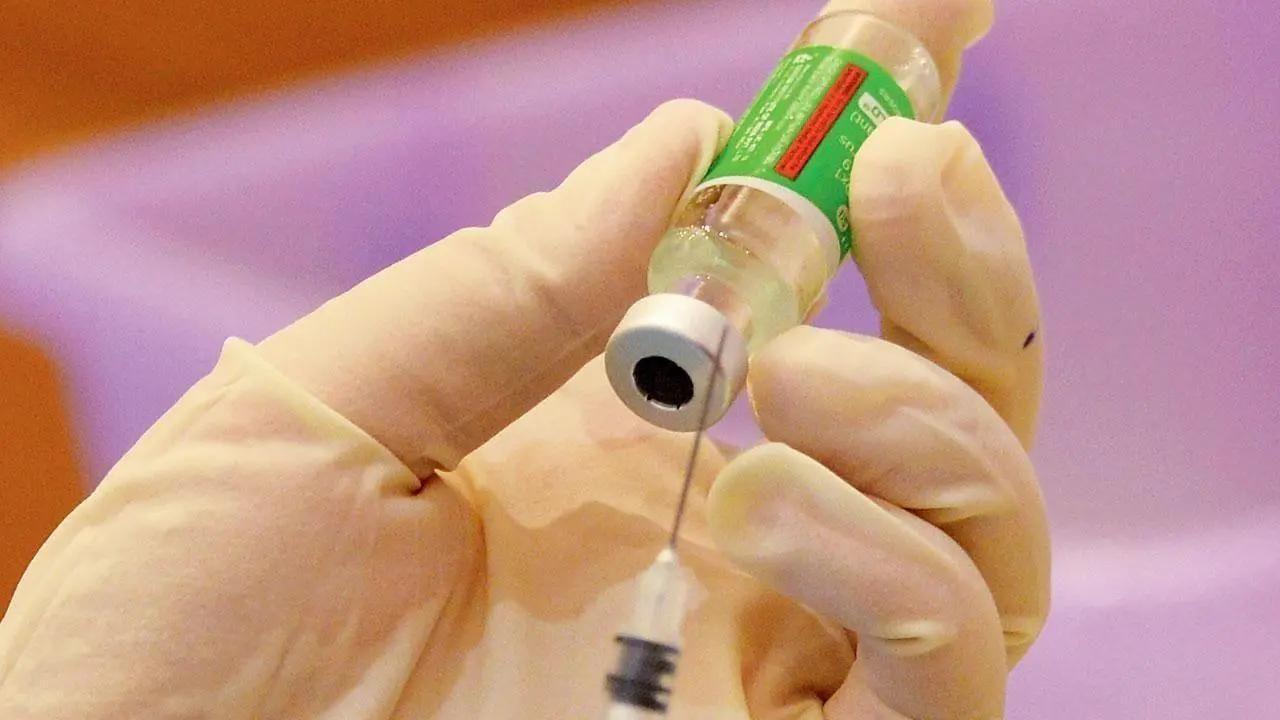In India, almost 90 per cent of people who received Covid-19 vaccine, received the AstraZeneca vaccine which in India is called Covishield

Image for representational purposes only. Photo Courtesy: iStock
Thrombosis Thrombocytopenia Syndrome (TTS) -- a blood clot disorder -- is a rare side effect of AstraZeneca’s Covid vaccine, and the benefits far outweigh the risks of the jab, said doctors here on Tuesday.
ADVERTISEMENT
This comes after reports said that AstraZeneca has for the first time accepted in court documents that its vaccine, developed in partnership with Oxford University, can raise the risk of a rare and serious blood clot.
The Oxford-AstraZeneca Covid vaccine, sold as Covishield in India and Vaxzevria in Europe is a viral vector vaccine developed using the modified chimpanzee adenovirus ChAdOx1.
Covishield manufactured and marketed in India in partnership with Serum Institute of India (SII), was widely administered in the country -- to almost 90 per cent of the Indian population.
"Thrombotic Thrombocytopenic Syndrome (TTS) is one of the rare but very serious adverse effects that has happened as part of Vaccine-induced Immune Thrombotic Thrombocytopenic Purpura (VITTP). The incidence has been as low as one in 50,000 (0.002 per cent), but in a huge population, the number becomes sizeable," infectious disease expert Dr Ishwar Gilada, told IANS.
"TTS is a very rare condition resulting from an abnormal immune response. Although it has several causes, it has also been linked with adenovirus vector vaccines and the WHO published a report on May 27, 2021 about it," Dr Rajeev Jayadevan, co-chairman of the Indian Medical Association’s National Covid-19 Task Force, told IANS.
What is the case?
The British-Swedish multinational pharmaceutical company has admitted for the first time in the UK court documents that its Covid vaccine can cause a rare blood clot risk, the Telegraph reported.
About 51 cases have been lodged in the UK High Court against the pharmaceutical giant over claims that its Covid vaccine caused death and serious injury.
The victims and grieving relatives have sought damages, estimated to be worth up to 100 million pounds, the report said.
Although AstraZeneca is contesting the claims "it has accepted, in a legal document submitted to the High Court in February that its Covid vaccine 'can, in very rare cases, cause TTS'", the report said.
TTS causes people to have blood clots and a low blood platelet count.
AstraZeneca’s Covid vaccine and link to TTS?
In India, almost 90 per cent of people who received Covid vaccine, received the AstraZeneca vaccine which in India is called Covishield. It is made from a harmless cold virus, which is from chimpanzees and is called adenovirus.
"Once this virus is genetically modified or engineered to match the SARS-CoV-2, a causative organism for Covid-19, this works on a spike protein. So, the vaccine is incorporated with the S spike protein genetic sequence," said Dr Gilada, Secretary General People's Health Organisation-India, Mumbai.
Explaining the mechanism of potential TTS risk, he said that the vaccine is injected in the arm which is in the deltoid muscle. However, “sometimes instead of just getting into muscles, it also enters the bloodstream. Once it enters the bloodstream, the adenovirus in the vaccines acts like a magnet, with a special affinity to a type of protein in the blood called platelet factor 4 (PF4),” the doctor said.
“While PF4 is normally used by the body to promote coagulation in blood, in rare instances, the body's immune system confuses it as a foreign body or foreign invader and then releases antibodies to attack it -- called mistaken identity.
"It is theorised that such antibodies then react and clump together with PF4, forming the blood clots that have become so heavily linked with the vaccine. Such clots in the brain and heart can cause disastrous adverse effects," the doctor said.
Should all Covishield vaccine takers be worried?
"No, we need not because it has happened to a very few people," Dr Gilada said.
"The difficulty is to distinguish between the complications that are caused by Covid itself or long-Covid or the vaccine. That remains debatable and indistinguishable for the scientific community as also the legal fraternity," he added.
Importantly, Dr Jayadevan said: "People who are vaccinated have an overall lower risk of death from Covid as well as complications such as post-Covid heart attacks and strokes afterwards."
"Although there are extremely rare serious side effects for vaccines, the benefits far outweigh the risks. Covid vaccines have prevented hundreds of thousands of people from dying. For example, in the US, 232,000-318,000 people have died from Covid, due to refusal to vaccinate from disproportionate fear of vaccination," he added.
This story has been sourced from a third party syndicated feed, agencies. Mid-day accepts no responsibility or liability for its dependability, trustworthiness, reliability and data of the text. Mid-day management/mid-day.com reserves the sole right to alter, delete or remove (without notice) the content in its absolute discretion for any reason whatsoever.
 Subscribe today by clicking the link and stay updated with the latest news!" Click here!
Subscribe today by clicking the link and stay updated with the latest news!" Click here!







